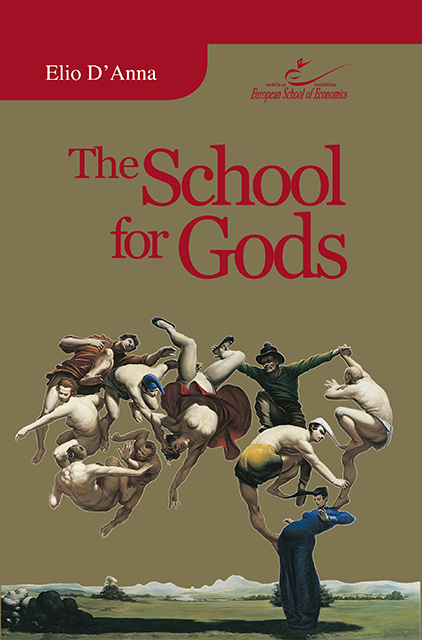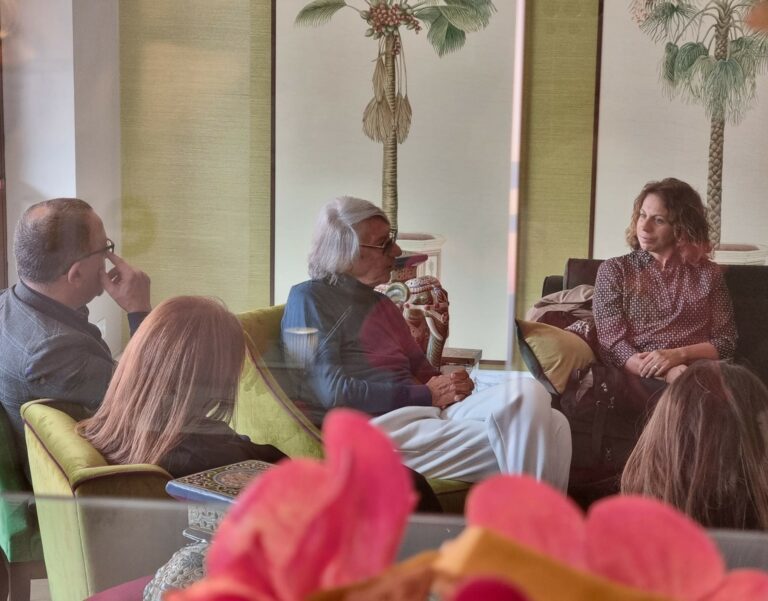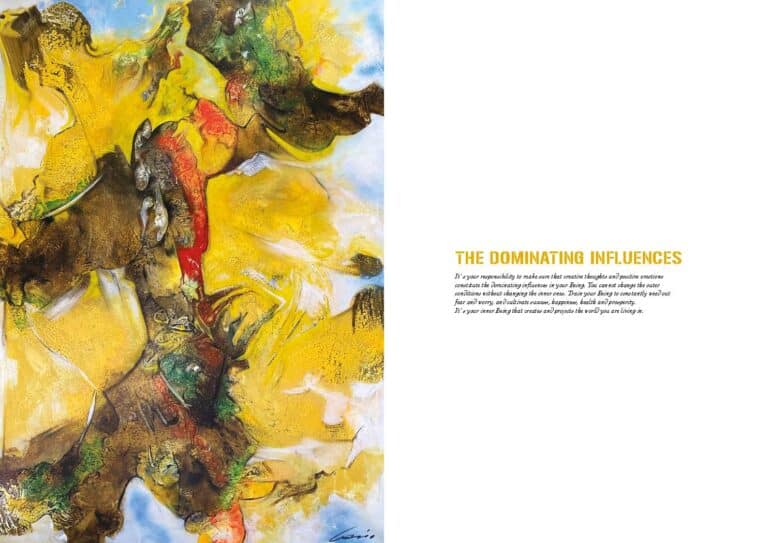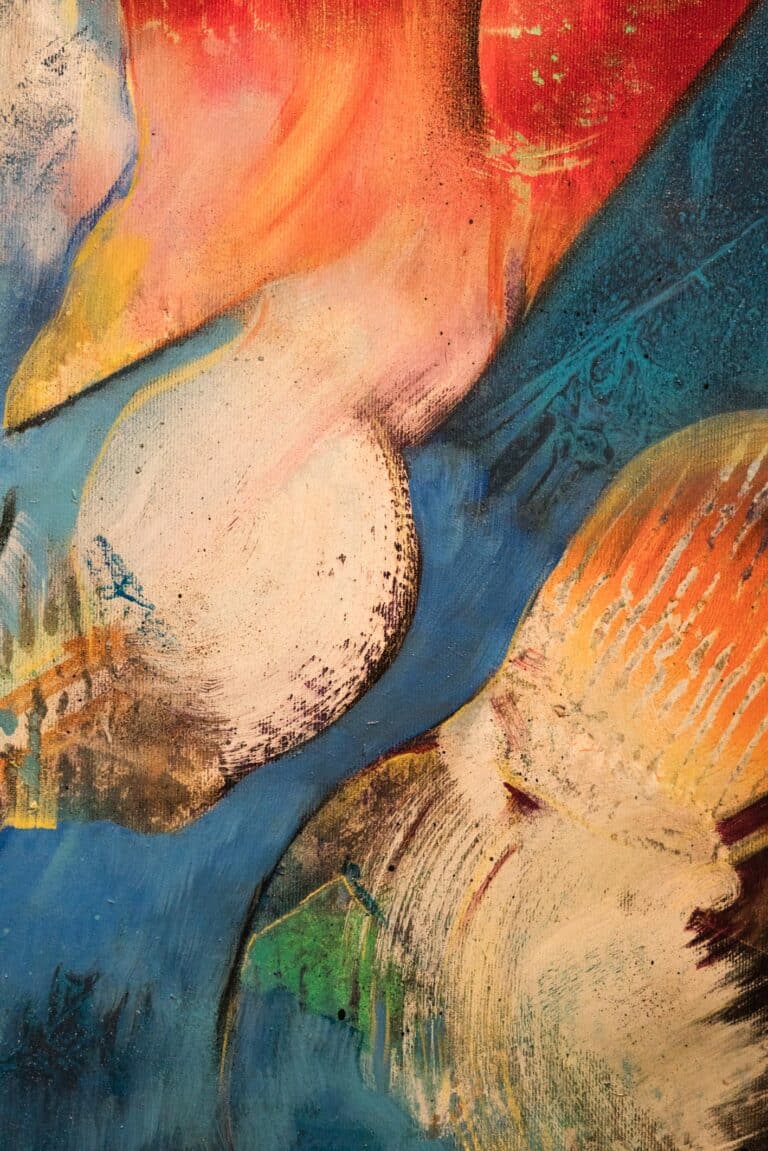Believing without believing
From ‘The School for Gods’
At one of the traffic lights, while the stale red seemed endless, I glanced out the window. There, on the side of a bus, just at eye level, I saw a slogan from the new campaign of the London transport authority:
“The bad news is that God is dead. The good news is that you don’t need Him.”
As I considered its meaning, something the Dreamer once told me came to mind: “The desire to eliminate God by those who call themselves atheists is their attempt, secret even to themselves, to exorcise their fear of death. A fear that grips and torments them more than any other.”
Thus the Dreamer overturned the common prejudice that views the atheist as a person of strength, one who refuses to lean on the illusory crutch of a God, unlike the rest of humanity. He was affirming that, in reality, weakness was their common denominator and the very foundation of that doctrine.
For an ordinary man, for those who have not attained an interior unity, believing and not believing are the same lie. The atheist has first transferred divinity outside himself, and then denied its existence.
The mortal sin of atheism therefore is not disbelief in God, denial of His existence, but disbelief in oneself.
These words recalled something else the Dreamer had said on that subject, something of such vastness that I could hardly believe that I’d forgotten it for such a long time. I couldn’t visualize where, or in which of our encounters I had heard those words from Him, but they were deeply carved within me and now they resurfaced in my memory.
“To believe is not difficult…everyone believes in something…
But forcing oneself to believe is for the few…,”
the Dreamer had said, expressing a concept capable of thrusting thought to heights beyond reason. The paradoxical phrase He’d coined, “Believing without Believing,” concealed a cathedral’s powerful structure beneath butterfly’s wings.
At the time I had been unable to absorb the greatness of this message, but now its pitiless light was showing me how much encomiastic rhetoric was bound up with belief, and how perilously close it came to the root of all fanaticism.
“Every creed, any faith you choose to embrace enlists you in an army of liars. ‘Belief’ makes you a follower of the doctrine of lying.”
In the Dreamer’s vision, believing induces membership to the masses of those who profess faith, the multitude of persons who spend their lives in a state of identification, of belonging, that sticks them to the flypaper of time. Even “disbelief” in God, as the atheists assert, is a belief that equally sinks them in the mare magnum of fundamentalists, dogmatists, the intolerant, and ideologues of every persuasion.
The Dreamer had never wanted to meet or otherwise have any contact with those who characterized themselves as spiritual persons or ‘seekers of truth.’ He told me once, “How much better off they’d be, and what greater benefit they’d derive if they’d stop looking for the truth outside and find the lie inside themselves.”
Once I’d asked the Dreamer, “ Why do you refuse very often to meet spiritual seekers?”
A. “Many of them are stuck in a vicious circle, entrapped in an unnecessary struggle. they have transferred the struggle for worldly goods to the struggle for heavenly riches but nothing is changed — they were lying before and they are still lying now. Instead of enjoying the world and laughing, they grunt, blame and complain.”
Not in opposition, but in a dimension vertical to the supine flatness of belief, there is “believing without believing,” the Dreamer’s liberating vision of enfranchising the individual, setting him free from the captivity of superstition and credulity.
There is no fault, no sin, no karma or punishment.
There is no life beyond and no universal judgment, no heaven and no hell. There is only this instant, sacred, infinite, and omnipotent.
Use it well! You will never have another chance.
‘Believing without believing’ means to choose one’s own intention and follow it to the end, unshakably. It is a high state of being that demands the elimination of falsehood, and it can be attained only by men of integrity who know and practice the Art of Acting.





